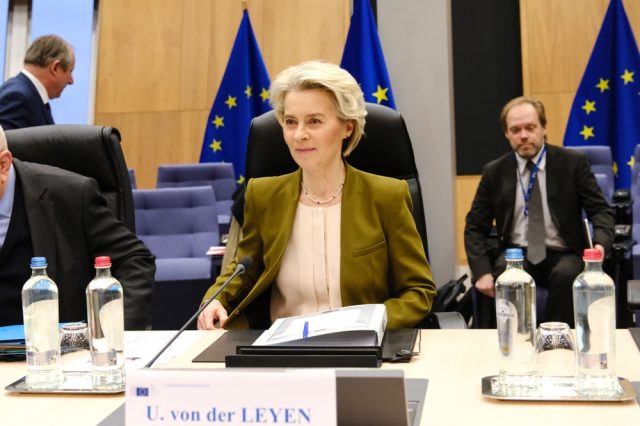
The recent Strategic Dialogue on the future of agriculture in the European Union, presented by Commission President Ursula von der Leyen, has sparked criticism from farmers. After seven months of discussions, the final report appeared to be a public relations triumph, managing to calm both farmers and associations alike. However, Copa-Cogeca, the most influential agricultural lobby in Europe that unites all associations from Member States to convey the primary sector’s interests to European institutions, has hardened its stance on some of the recommendations, particularly regarding the promotion of plant-based diets.
Copa-Cogeca expressed its outrage in a letter to the Commission, highlighting that of the 29 participants in the dialogue, only five were farmers. This disproportionate representation has led Copa-Cogeca to demand greater farmer participation in the new European Food Committee (EBAF), proposed as the successor to the Strategic Dialogue. In this regard, Jan Doležal, president of the Czech agricultural chamber, emphasized that the focus must center on farmers since the dialogue originated in response to their protests.
However, this push for greater agricultural representation could prove problematic. On one hand, von der Leyen’s intention to transform the dialogue’s conclusions into a single vision for EU agriculture faces resistance from groups that feel excluded from this participatory process. On the other hand, Copa-Cogeca’s proposal to shift the conversations into a more rigid and formal process could be counterproductive, especially if it leads to a return to the polarization that was sought to be avoided, although it is evident that their interests must be predominantly represented by the sector itself.
From its inception, the Strategic Dialogue was viewed as a success. However, as the negotiations approached their conclusion, participants began to show signs of tension. In fact, the dialogue’s moderator, Peter Strohschneider, had to pressure reluctant delegates to reach a consensus and set aside accusations. Criticism focused on recommendations favoring small farmers and promoting dietary decarbonization, which many in the sector see as a threat.
In this context, some agricultural organizations from various countries have already voiced their disagreement, stating that the report did not meet their expectations. This division has prompted some, such as representatives from the Visegrad countries, to demand a review of the conclusions and to consider the possibility of Copa-Cogeca withdrawing from the dialogue.
The challenge now is to find a balance that allows farmers to participate in policy formulation without compromising the achievements made during the dialogue. Despite the discontent, Copa-Cogeca’s leadership has attempted to ease tensions, insisting that the report is merely a starting point, and that dialogue will continue to improve the sector’s intentions.
In this context, the next phase is expected to be uncertain. Copa-Cogeca’s secretariat has clarified that the dialogue is not a binding agreement, meaning that the issue of a possible withdrawal does not directly apply. However, the lack of consensus on how to proceed raises questions about the future of the discussions and the impact they will have on European legislation.
Thus, von der Leyen intends for the conclusions of the dialogue to guide future agricultural legislation and has specifically tasked Christophe Hansen, her designated agriculture commissioner, with following up on the proposals.
While the Strategic Dialogue has produced a report that theoretically represents a diversity of opinions, the implementation of its conclusions faces significant challenges, primarily stemming from the powerful lobby of Copa-Cogeca and other influential groups. This divergence in perspectives poses a serious obstacle to achieving a unified approach.
If the European Commission fails to effectively mediate these differences and facilitate constructive dialogue among all stakeholders, the potential benefits of the Strategic Dialogue could be lost. Consequently, this could result in a situation where stakeholders in the agricultural sector are left in a state of uncertainty and insecurity, ultimately leading to heightened tensions and discontent within the industry, as conflicting interests clash without resolution.



 Subscribe
Subscribe